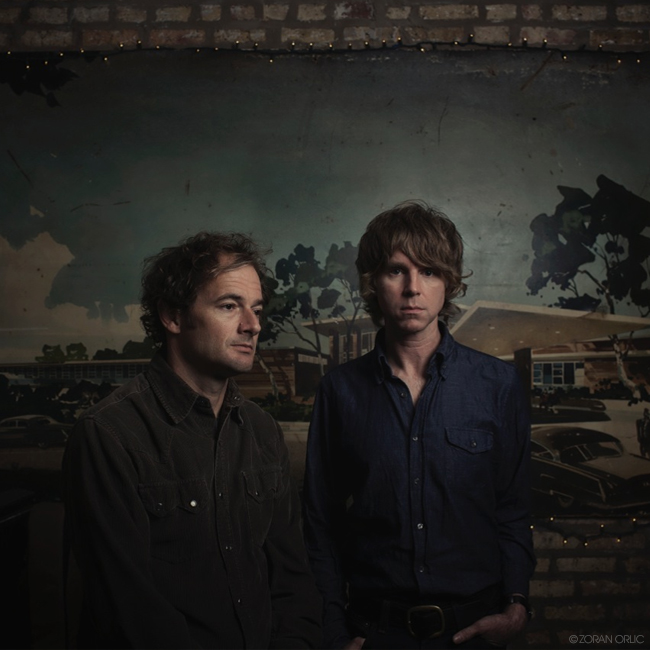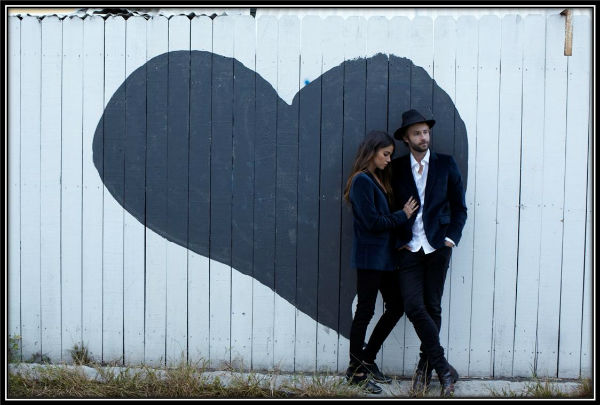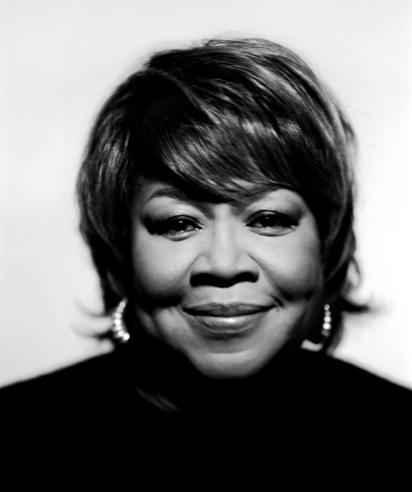
For the last fifteen years, Pat Sansone has been quietly releasing albums with John Stirratt as The Autumn Defense. Stirratt and Sansone first met in New Orleans in the mid 90’s, long before they were touring around the world together as members of Wilco. Fifth, the group’s latest placid, charming collection of songs, was recorded in Chicago over the course of a year when Stirratt and Sansone found time in between breaks from touring with Wilco.
Videos by American Songwriter
The Autumn Defense is devoted to continuing the tradition of melodic, rich pop from the 60’s and 70’s, releasing under the radar, straight-forward albums of no-nonsense pop classicism every few years. We recently caught up with Pat Sansone on the road as he traveled to New York on the eve of the band’s February U.S. tour. We talked to Sansone about his new record, his songwriting process songwriting, and his undying love of Big Star.
What was new about your latest album Fifth?
The main difference was that for this record, we were able to get our entire live band into the studio to do the basic tracking. It’s the first time we’ve been able to do that. We’ve been playing with the same guys in the live show for the last seven years or so, and our drummer Greg Wieczoreck has been with us since the early days of the band, and our bass player Jim Haggerty has been playing with the live band for about seven years. John Pirucello has been with us since Circles, on pedal steel and electric guitar, so we have a long history with these guys and it just made the initial work for the record a lot easier. It made it very comfortable and fun.
Do you and John generally come to the studio with fully-formed songs, or do you write in the studio as well?
We don’t do a lot of writing in the studio, we do a lot of arranging. Usually we both write songs separately, and just prior to going into the studio with the band, we show each other the material. We help each other decide what we’re going to work on, and sometimes we’ll help each other finish a song if we’re stuck. Then, we take it into the studio and show it to the guys. We do a lot of on the spot arranging.
When you’re coming up with a song, are you usually writing specifically with The Autumn Defense in mind?
I think we both do, even if it’s not consciously. I’m sure that that’s in the back of our minds when both of us are writing.
I know for myself, when I’m writing for the Autumn Defense records, I write with the instrumentation and the vibe, and the sound that we have, in mind. I know there are things that we can do, and that helps me write.
That being said, it’s also fun to push the expectations a little bit and try to expand. I think both of us wanted to try to inject a little bit more energy and electricity into some of the material. It still sounds like us, it’s still very much the Autumn Defense, but there’s a little bit more electric guitar this time, and a little bit more of a sunny feeling on some of the tracks.
Have you ever been surprised that a song has ended up working as a Autumn Defense song, when you weren’t sure it might be right for the band?
On this album, there was this song “Calling Your Name.” That one happened in sort of a roundabout way. It was the very last tracking session with the guys, I just had a few different piano figures I liked. I didn’t really know if they would end up being for a song or would be intended for this record or anything like that, I just wanted to get these piano ideas down before they disappeared. And so I recorded them, and Greg played some drums to them in the studio, and it just kind of inspired me to turn it into a song. It really was kind of a spontaneous studio event that ended up pointing me towards a song when I didn’t even know it was there.
Why do you think the music that type of 70’s-inspired music The Autumn Defense has always played and referenced is so much more in fashion now, compared to when you and John first started the band?
It was just time for that music to start its way back into the musical consciousness. I guess the 90’s was kind of a transitional time, after punk rock and after grunge, and there was eventually going to be a need for organic sound. People wanted to hear harmony again and melody and arrangement, and we’ve always loved that and that’s kind of what we’ve always been striving to achieve in our records. Obviously, it was something that a lot of other people were looking for too.
Everybody also became so much more connected with the internet. Now people could talk about these records and celebrate these records and have a platform to do so, and there was a way for people to find them. Everything is findable now. There’s an audience for almost everything. It might be small, but there’s an audience for everything.
Do you and John still go crate digging for old 70’s records?
Yeah, we’re alway discovering stuff. The 60’s and 70’s were such a fertile time for creativity. It’s pretty astounding, when you think you’ve heard it all, something will still pop up and you’ll be like ‘man I can’t believe I never heard this’. This is pretty surprising because John and I are both huge Big Star fans, but just the other night we were listening to the album called Rock City, that’s Chris Bell’s band before Big Star. Chris Bell and Jody Stephens and another songwriter named Thomas Eubanks, they had a band called Rock City, and some of the tracks that ended up on the first Big Star album were actually from this Rock City album, and it’s just brilliant. It’s incredible. There’s always stuff out there that we’re still stumbling on.
Does the fact that The Autumn Defense is essentially a side project for you and John make you guys feel more or less pressure when working on the records?
It’s kind of both. There’s probably more pressure that we put on ourselves, we try to make the record as great as we can. We care a lot about the way these records sound, and put a lot of time and work into the production and the arranging, so there’s a lot of focus, a lot of care. But we also know that the Autumn Defense doesn’t have the audience that Wilco has, so we’re mainly trying to make the best record that we can for ourselves. The audience that has been with us over the years, that’s why they’re fans of ours. We just try to make records that sound like records that we love.













Leave a Reply
Only members can comment. Become a member. Already a member? Log in.